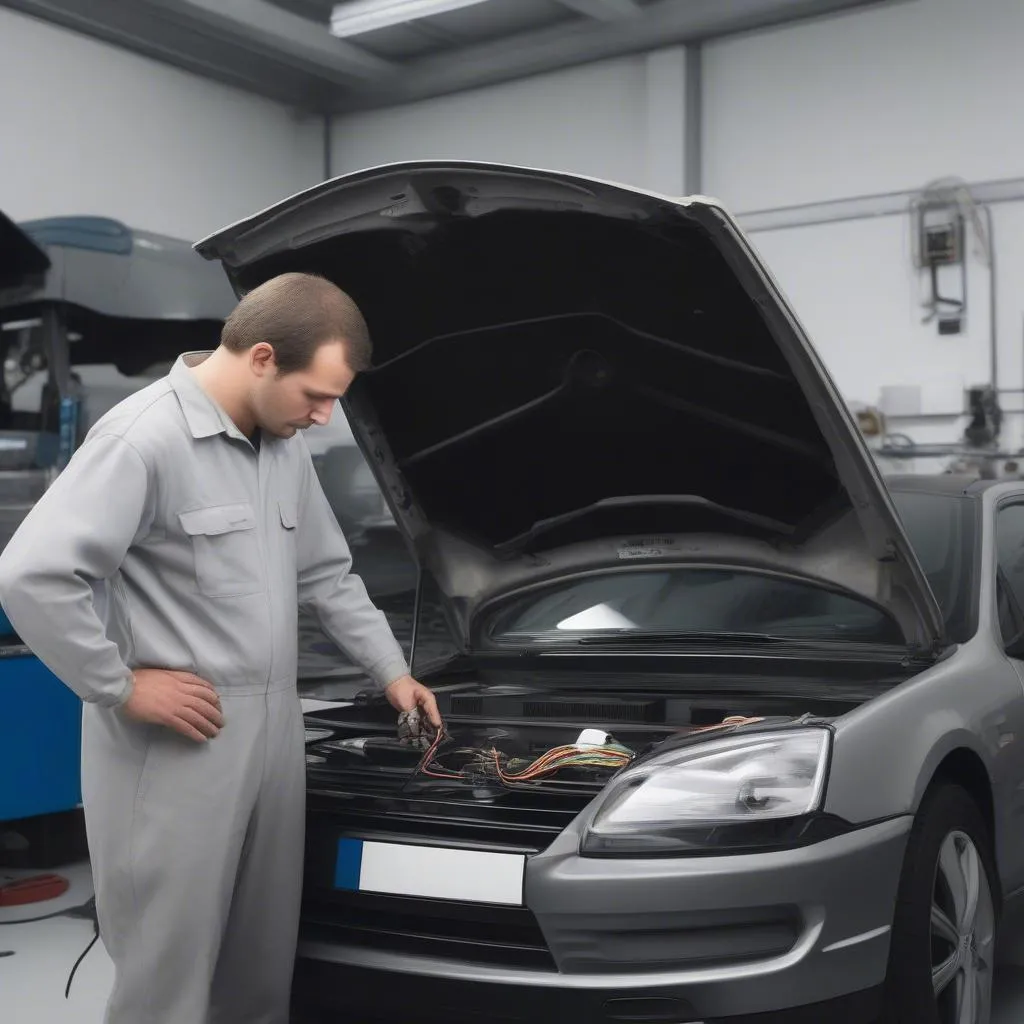You’ve just bought a new car, or maybe you’ve had your current one for a few years. Either way, you might be wondering: “How often should I get my car inspected?” It’s a question that pops up in the minds of many car owners, and it’s a wise one to ask. After all, regular car inspections are a crucial part of maintaining your vehicle’s health and ensuring your safety on the road.
Understanding Car Inspections and Their Importance
Why are Car Inspections Important?
Let’s think about it this way. Imagine your car as a complex machine with many moving parts, each playing a vital role. Just like a machine, your car requires regular check-ups and maintenance to run smoothly and prevent potential breakdowns.
Car inspections are like those check-ups. They help uncover any hidden issues before they escalate into major problems, potentially leading to costly repairs or even accidents.
Car Inspections and the Law
In many states and countries, car inspections are required by law. These inspections are conducted by certified mechanics or inspectors who assess the vehicle’s safety and emissions standards.
How Often Should You Get a Car Inspection?
The Basics of Car Inspections
For general car maintenance, it’s best to follow your car manufacturer’s recommended inspection schedule. This schedule is typically provided in your owner’s manual and may vary depending on your specific vehicle model and year.
The Usual Schedule
Generally, car inspections are recommended at least once a year or every 12,000 miles (approximately), whichever comes first. However, if you frequently drive in harsh conditions or experience any unusual noises or performance issues, it’s always best to seek professional advice and schedule an inspection sooner.
The Impact of Driving Conditions
Factors like driving in harsh environments (think extreme temperatures, dusty roads, or mountainous areas), heavy towing, or frequent driving in stop-and-go traffic can accelerate wear and tear on your vehicle. In these cases, it’s a good idea to get more frequent inspections to ensure your car stays in tip-top shape.
What to Expect During a Car Inspection
Comprehensive Check-Ups
A typical car inspection covers a wide range of components, including:
- Engine and Engine Compartment: Checking for leaks, belts, hoses, fluids, and overall performance.
- Brakes: Assessing brake pad/shoe wear, brake fluid levels, and hydraulic system functionality.
- Steering and Suspension: Inspecting steering linkage, suspension components, and tire alignment for proper handling.
- Lights and Electrical System: Testing headlights, taillights, turn signals, brake lights, and verifying electrical connections.
- Exhaust System: Examining for leaks, corrosion, and overall functionality.
- Tires and Wheels: Checking tire pressure, tread depth, wear patterns, and wheel condition.
Beyond the Basics: Car Inspections for European Cars
Diagnostic Tools for European Vehicles
European cars often use more advanced electronic systems that require specialized tools for diagnosis. Dealer Scanners, like the ones used by authorized dealerships, are crucial for accessing and analyzing data from your vehicle’s computer.
The Importance of Expertise
It’s important to choose a mechanic experienced in working with European vehicles and equipped with the appropriate diagnostic tools. They can accurately identify and diagnose any issues related to your car’s electrical systems.
Common Questions and Answers About Car Inspections
How can I find a trusted mechanic for my European car?
Here are some helpful tips:
- Ask for Referrals: Talk to friends, family, and fellow European car owners for recommendations.
- Check Online Reviews: Look for reputable mechanics with positive online reviews.
- Look for Certification: Verify if the mechanic is certified by a reputable organization like the ASE (Automotive Service Excellence) or Euro Car Parts.
What are some signs that my car needs an inspection?
Here are some common indicators:
- Unusual Noises: Hearing squealing, grinding, rattling, or other unusual sounds while driving.
- Check Engine Light: The “check engine” light coming on on your dashboard.
- Reduced Fuel Efficiency: Noticing a sudden drop in your car’s gas mileage.
- Difficulty Steering: Experiencing a stiff steering wheel or unusual pulling to one side.
- Smoke or Fumes: Seeing smoke coming from the exhaust or smelling unusual odors.
- Fluid Leaks: Finding puddles of fluids under your car or noticing leaks.
Should I get my car inspected after buying a used car?
Absolutely! It’s a smart move to have a pre-purchase inspection before buying a used car. It can reveal any hidden problems and give you a better understanding of the car’s condition.
Is it better to go to a dealership or an independent mechanic?
While dealerships are well-versed with specific car models, independent mechanics often offer competitive prices and personalized service. It’s a matter of personal preference and budget.
Final Thoughts
By sticking to your car’s recommended inspection schedule, you can protect your investment, ensure your safety, and potentially save money on costly repairs down the road. Remember, regular maintenance is key to keeping your car running smoothly and reliably.
Don’t hesitate to reach out if you have any questions or need help finding a reliable mechanic!
We’re here to help you keep your European car in top condition.
 Mechanic Inspecting a European Car
Mechanic Inspecting a European Car
Contact us for expert advice and assistance:
+84767531508 (Whatsapp)
